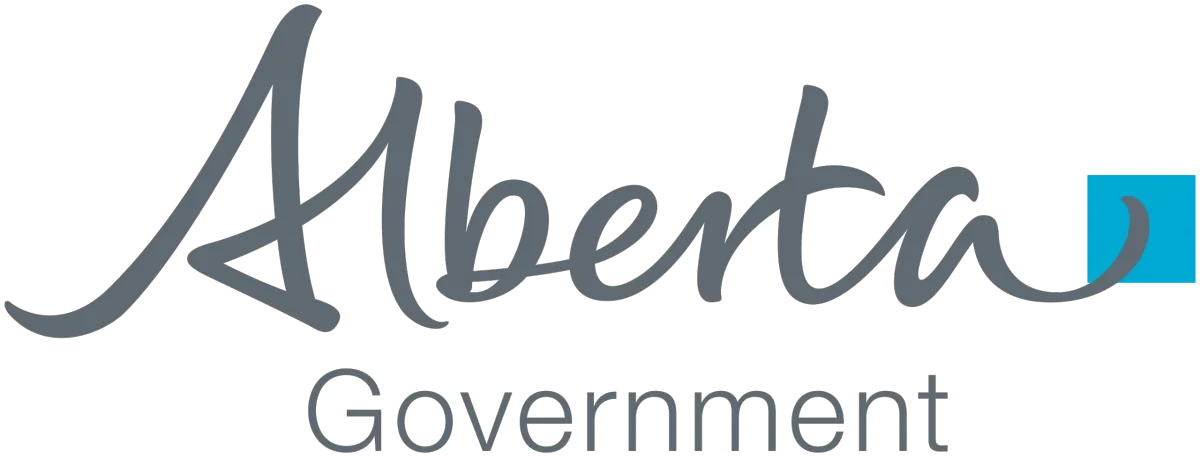Get a Safety Manual. Today.
Create your Occupational Health & Safety Program in days with pre-built Policies and Manuals.
International Safety Compliance

OSHA
United States

WorkSafeBC
British Columbia

OHS
Alberta
A vision for fast and easy OHS programs
An Occupational Health and Safety Program is critical for any company to ensure a safe and healthy workplace for employees and to comply with regulatory requirements. Implementing a comprehensive program helps to identify and mitigate workplace hazards, improve workplace safety, and protect employees from harm.
Avoid fines and interruptions
Safety Policies and Manuals
Customizable to your business
Budgeting that suits you
Safety Compliance has
never been this easy

Save Time
Writing a comprehensive safety manual from scratch is time-consuming, especially for those without extensive knowledge of workplace safety regulations. How many hours can you or your team spare to study?
Skip the writing and get straight into editing to tailor each policy to how your business runs.

Save Money
Creating a safety manual from scratch is expensive, and it may require hiring outside experts. Save money by purchasing a template and avoiding months of employee time and wages. Do the math and see for yourself.
Simply edit a comprehensive and pre-built manual to tailor it to your specific company.

Save Worry
Our safety manuals are developed by experienced professionals who have a deep understanding of workplace safety regulations. Avoid more fines and violations by fast-tracking your safety program with pre-built manuals and policies.
You're days away from having a safety manual that's ready to use at your company right away.
Get your Safety Program
Up and Running
Flexible
Cherry-pick policies
Bundle policies
Build your Safety Manual
Customized
See your company name
See your company brand
Be Safety Compliant
Compliant
Get manuals and policies
Get safety training
Get a Safety Program
Made for your Industry
With a pre-written and customizable template, you can quickly tailor it to your specific business. Save time, money, and people compared to writing one from scratch.
Whatever your industry, get compliant in days with our comprehensive and customizable Safety Manuals, OHS Programs, Safety Polices. Remove the Policies that don't apply and build your own Manual or bundle it with training to make it a Program.

Electrical, Heating, and HVAC

Construction, Fabrication, and Manufacturing

Carpentry, Concrete, and Masonry

Roofing, Siding, and Home Services

Plumbing, Pipefitting, and Sprinklerfitting

Landscaping, Grounds Maintenance, and Agriculture
Don't see yours?
Pre-Built
Policies and Manuals
MOST FLEXIBLE
Safety Policy
$49
Unlimited use
Branded? no
Files PDF
Choose from 30+ WorkSafeBC OHS Policies and receive it to your inbox instantly. Pick only the Policy you need, when you need it. New Policies added often.
Alberta OHS and OSHA Policies coming soon
BEST VALUE
Safety Manual
$1149
Unlimited use
Branded? no
Files PDF
Get a Pre-built WorkSafeBC Safety Manual. Simply edit it with your team to suit it to your specific business.
Why write it from scratch? Get all 34 WorkSafeBC Policies in a single Manual file.
Alberta OHS and OSHA Manuals coming soon
EASIEST EDIT
Safety Manual+
$1549
Unlimited use
Branded? yes
Files PDF + Doc
Get a Pre-built WorkSafeBC Safety Manual with your company's branding. Choose which Policies to exclude.
Why write it from scratch? Get all 34 WorkSafeBC Policies in a single Manual file. Receive an additional Google Doc for easy editing.
Alberta OHS and OSHA Manuals coming soon.
TOTAL PACKAGE
Safety Program
$6999
Unlimited use
Branded? yes
Files PDF + Doc
COMING SOON -
Get a Manual, pre-built employee training courses, and templates for your inspections and Joint Health & Safety Committee.
Want to make your own training?
Ask us about our online course builder.
Frequently Asked Questions
What happens if I don't have a Safety Program?
According to WorkSafeBC, if a company does not implement a safety program, they may face consequences such as penalties and fines for non-compliance with the Occupational Health and Safety Regulation. In addition, the company may also face increased risks of workplace incidents and accidents, which can result in injury or harm to workers and negative impacts on the business. By failing to implement a safety program, a company is also failing to fulfill its duty to provide a safe and healthy work environment for its workers.
If you don't implement a safety program according to OSHA, your company could face penalties and fines for failing to comply with the regulations and standards set by OSHA. Additionally, the lack of a safety program can lead to increased risks of workplace accidents and injuries, which can result in increased costs, lower productivity, and potential legal liabilities. OSHA requires employers to provide a safe and healthy work environment for their employees and failure to comply with this requirement could result in penalties, fines, and legal action.
According to Alberta Occupational Health and Safety (OHS), failing to implement a safety program can result in significant consequences, including penalties, fines, and even criminal charges. Alberta OHS has a legal obligation to ensure that all employers are providing a safe and healthy work environment for their employees. If an employer is found to have failed to implement an adequate safety program, they can be issued with fines or penalties, and, in serious cases, may even face criminal charges. This can have serious impacts on the employer's reputation and financial stability, as well as causing harm to workers. In order to avoid these consequences, employers must ensure that they have a robust and effective safety program in place that meets the requirements of Alberta OHS.
When do I need a Safety Program?
According to WorkSafeBC, an employer in British Columbia, Canada is required to have a safety program if they employ 20 or more workers. A safety program is a systematic approach to managing workplace health and safety, and it helps employers meet their legal obligations under the Workers Compensation Act and its regulations. The safety program must outline the policies and procedures that the employer has in place to manage and prevent workplace hazards and injuries.
According to the Occupational Safety and Health Administration (OSHA), a safety program is needed in order to help prevent workplace injuries and illnesses. OSHA requires that employers take steps to eliminate or reduce workplace hazards to ensure a safe and healthy work environment.
The specifics of when a safety program is required by OSHA may vary depending on the size of the organization, the industry, and the types of hazards present in the workplace. Employers with 10 or fewer employees may be exempt from some recordkeeping requirements, but still have a responsibility to provide a safe workplace for their employees. Employers with 11 or more employees are generally required to establish a safety program and maintain accurate records of workplace injuries and illnesses.
According to Alberta Occupational Health and Safety (OHS), employers are required to have a safety program in place if they have 20 or more workers or if they operate in a high-risk sector, such as construction. The purpose of the safety program is to identify and control workplace hazards, prevent injury and illness, and promote a safe and healthy work environment for all employees. The safety program should be tailored to the specific needs and risks of the workplace and include the following elements: hazard assessment, hazard control, emergency preparedness, training, and regular review and updating.
Why do I need a Safety Program?
A safety program is necessary in a workplace to prevent accidents and illnesses, ensure compliance with health and safety regulations, and foster a culture of safety among employees. It helps to identify and manage potential hazards, establish procedures for reporting incidents, and provide training and resources for preventing incidents from occurring.
A comprehensive safety program can reduce the number of workplace accidents and illnesses, minimize financial losses due to work-related incidents, and improve overall employee morale and productivity.
Learn More on the Safe Bet Blog

What is the process for reporting a workplace incident or injury according to WorkSafeBC?
According to WorkSafeBC, the process for reporting a workplace incident or injury involves the following steps:
Get first aid or medical treatment as necessary.
Report the incident or injury to your supervisor or employer as soon as possible.
Complete a worker incident report, which includes details about the incident or injury and the affected worker. This report can be completed online or in hard copy.
Your employer must also complete an employer incident report and submit it to WorkSafeBC within three days of learning about the incident or injury.
WorkSafeBC will review the incident and may investigate further if necessary.
It's important to report workplace incidents or injuries as soon as possible to ensure that affected workers receive appropriate care and that steps can be taken to prevent similar incidents in the future.
The worker incident report is a form needed for reporting a workplace incident or injury can be found on the WorkSafeBC website under the "Forms and Resources" section. The worker incident report form is called "Form 6A - Worker's Report of Injury or Occupational Disease to Employer."
Other forms that may be needed depending on the situation include the "Form 7 - Employer's Report of Injury or Occupational Disease" and the "Form 7A - Time Loss and Wage Loss Report." These forms can also be found on the WorkSafeBC website under the same "Forms and Resources" section.
It's important to ensure that the correct forms are used and filled out accurately, as any errors or omissions can cause delays in processing the claim or result in the claim being denied. WorkSafeBC also provides guides and resources to assist with completing the forms correctly. Here are some tips to fill out the form correctly:
Fill out the form as soon as possible after the incident or injury occurs, while the details are still fresh in your mind.
Provide detailed and accurate information about the incident or injury, including the date, time, location, and description of what happened.
Include information about any witnesses to the incident or injury.
Describe your injury or symptoms in detail, including where on your body you were injured and what you were doing at the time.
Be as specific as possible about the tasks you were performing when the incident or injury occurred.
Sign and date the form to confirm that the information you have provided is true and accurate.
Submit the form to your employer as soon as possible. Your employer is required to submit the form to WorkSafeBC within three days of the incident or injury.
Remember that reporting an incident or injury is an important part of ensuring that you receive the medical care and compensation you need, and that your workplace is safe for you and your coworkers. If you have any questions about the form or the reporting process, you can contact WorkSafeBC for assistance.

Hours
Mon – Fri
9:00am – 5:00pm EST
Copyright 2023 . All rights reserved
Powered by Loyalist - try it for free
Launched by Wolfmother Consulting - operations others will envy





